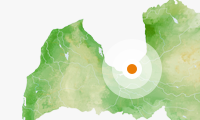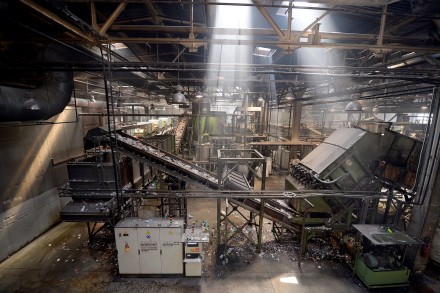JSC (A/S) PET Baltija has reached production capacity ceiling, and currently the company considers investment attraction opportunities for the purpose of expansion of activity
JSC (A/S) PET Baltija is specialising in recycling of used PET bottles thus obtaining high value PET flakes to be exported to Europe. The company has applied for the competition Export and Innovation Award 2014 organized by the Ministry of Economics and Investment and Development Agency of Latvia (LIAA), in the category Best Exporter in large/ medium partnership group.
Feeling stable
PET Baltija is the first and only PET recycling factory in Latvia and the largest production unit of such kind in the Baltic States. The company is a part of ECO Baltia group comprising altogether nine companies. PET Baltija produces transparent PET flakes, light and dark MIX PET flakes and by-products recycling transparent and colourful PET bottles. Recycling of one PET bottle allegedly results in 30-35 grams of flakes. The amount of PET flakes produced in a month exceeds 1700 tonnes. These flakes can be used as raw material for the production of various packing for food, as well as manufacturing of fibres and PET tensioning belts. Approximately 60% of the customers of PET Baltija are food packing producers, but 40% - manufacturers of fibres and tensioning belts. This year the company has made significant investments in the current production line, installing the pre-sorting complex. Total investments of this project amounted to nearly 300 thousand euro. Pre-sorting complex provides the production unit an opportunity to recycle various quality raw material. Such investments increase competitiveness of the company and product in the market and facilitate export volumes. “We export all the PET flakes we produce. According to our calculations our market share in Europe reaches 1.5%,” tells Kaspars Fogelmanis, Director of PET Baltija. Increase of the company’s turnover has been significant since 2010 – from over 10 million euro in 2010 to 18 million euro in 2013.
Currently PET Baltija exports the produced PET flakes to Denmark, Lithuania, Netherlands, Italy, Switzerland, Poland, Czech Republic, Romania, Finland, Luxembourg and Estonia.
Taking into consideration the specific character of the secondary raw material market the best way for searching of customers is establishment of personal contacts with the suppliers and customers instead of attending of sectoral exhibitions. For example, this year PET Baltija has commenced cooperation with representatives of Saudi Arabia, and contacts are being established also in Russia. Whereas, last year representatives of PET Baltija visited China and attended several companies – manufacturers of PET products – in three provinces.
Need for higher output
Currently PET Baltija factory works at full capacity, and the ceiling of production capacity has been reached. Increase of production output requires investments amounted at approximately 5.5 million euro. Attraction of investments for the development is not that simple. “We do not have support of a rich foreign parent company however we understand that we may not stand still. Upon increase of the production output we could increase production volume of PET flakes by 500 kg per hour. We are planning to attract investments in a year or two. Increase of production output would definitely pay off,” prognosticates director of the company.
There are no problems with availability of raw material, and the company do not suffer from lack of labour force. Although the entire process of production of PET flakes has been mechanized, it contains approximately 10-15% of handwork. Working in such a factory is not a walk in the park however competitive wages provide sufficient number of employees. “Additional quality control makes us more competitive, because we are able to provide higher quality PET flakes, since the machines are not able to sort and control everything. In this aspect we are in better situation than PET flake production units in Germany and Scandinavia – introduction of quality control in these countries is still in progress,” explains K.Fogelmanis. At the same time Sweden is one of the most serious competitors of PET Baltija. Their local market is closed to foreign companies due to local regulations. Swedish legislation provides that all PET bottles must be recycled inland, and only finished products may be exported. “Swedes operate rather expensive deposit system. Other countries operating such a system do not apply similar restrictions, and we work with Danish, Finnish and Estonian deposit system,” tells director of the company. However there are no concerns of other countries following the Swedish example, since construction of such a PET bottle recycling factory is neither easy, nor cheap.
Prognosticating results of this year the director of PET Baltija reveals that in terms of the volume produced the level of 2013 will be exceeded, but any conclusions regarding turnover and profit indicators are premature. “This sector goes hand in hand with oil prices, which have fallen to the lowest level in the last five years, and this impacts also the development of our business,” he continues. Despite the common market situation the company is planning to increase the turnover by 10-15% next year. “We will try to add value to other by-products and continue modernization of the production unit. We will try to explore the potential fields of use for PET flakes. Currently there is a new wave of development, which has started in the USA – 3D printers, where PET products are used. Echo of this tendency has reached also the Europe,” says K.Fogelmanis.
By Linda Zalāne
This article was published on the November 24, 2014 in the newspaper “Dienas Bizness”.


